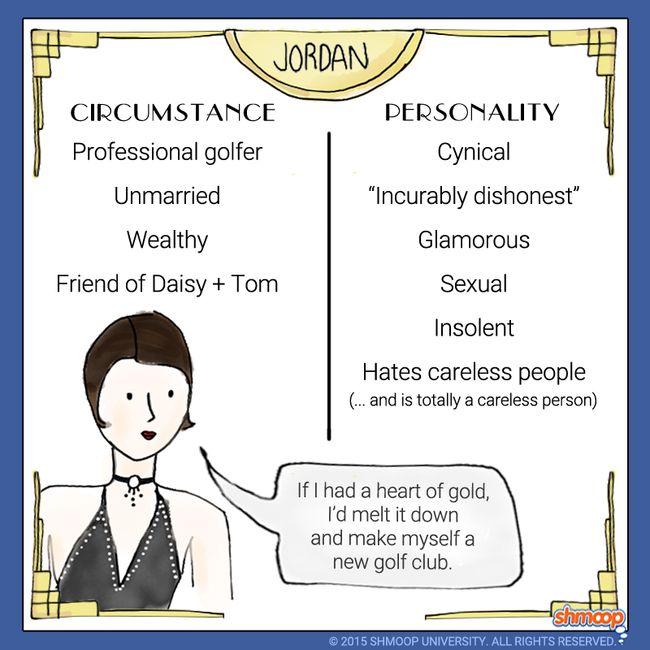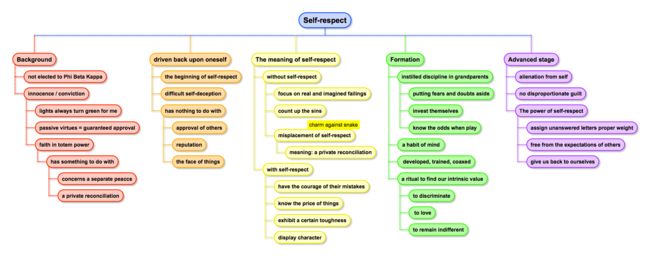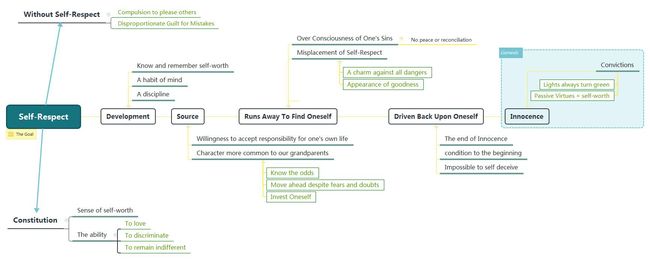Day 15: Words & Phrases
- strip
**~ sth (off) | ~ A (off / from B)/~ B (of A) **
to remove a layer from sth, especially so that it is completely exposed
- Deer had stripped the tree of its bark.
鹿啃掉了树皮。 - After the guests had gone, I stripped all the beds (= removed all the sheets in order to wash them).
客人走后,我把铺的牀单全都撤了下来。
- delusion
a false belief or opinion about yourself or your situation
- the delusions of the mentally ill
精神病患者的妄想 - Don't go getting delusions of grandeur (= a belief that you are more important than you actually are).
不要变得妄自尊大。
- marvel
to feel or express great surprise or admiration at something, especially someone’s behaviour:
- marvel at/over
- I marvelled at my mother’s ability to remain calm in a crisis.
- Visitors to Rome marvel over the beauty of the city.
- marvel that
- I marvelled that anyone could be so stupid.
- tremor
- a small earthquake in which the ground shakes slightly
- an earth tremor 地动
- a slight shaking movement in a part of your body caused, for example, by cold or fear
- There was a slight tremor in his voice.
他的声音略微有点儿颤抖。
- clarity
Clarity means clearness. Clean water running down a mountain has clarity. So does a lovely singing voice: it's clear and pure.
If you bring clarity to a situation, you help people see what really happened by clearing up misunderstandings or giving explanations. Sometimes people talk about having moments of clarity when suddenly everything about a particular situation or even about life itself comes into focus. People also talk about good writing having clarity when it is precise, clean, and easy to understand.
- flavor
If you think that something or someone is very popular at a particular time, you can say that they are flavour of the month.
- Hats were very much flavour of the month…
帽子在当时是时尚热宠。 - Middlesex cricketers Gatting and Emburey are hardly flavour of the
month.
米德尔塞克斯郡板球选手盖廷和恩伯里很难说是当红人物。
- misplaced
- not appropriate or correct in the situation
- misplaced confidence / optimism / fear
不应有的信心/乐观精神/恐惧
- (of love, trust, etc.) given to a person who does not deserve or return those feelings
- misplaced loyalty
无谓的忠诚
- unnerve
If you say that something unnerves you, you mean that it worries or troubles you.
- The news about Dermot had unnerved me…
关于德莫特的消息让我很担心。 - Tony was unnerved by the uncanny familiarity of her face.托尼对她的样子异常熟悉,这很让他烦恼。
- hamper
Use the verb hamper to describe an action that slows progress or makes it difficult to do something but not shut down completely.
Hamper often describes travel during bad weather, like icy conditions that could hamper holiday travel. Hamper means "slow going."
You may have heard of noun form of hamper, a container for holding dirty laundry: If your hamper is full, the need to do laundry could hamper your plans of going out and having fun.
- tragic
- A tragic event or situation is extremely sad, usually because it involves death or suffering.
- It was just a tragic accident...它只是场不幸的事故。
- …the tragic loss of so many lives…这么多人的不幸丧生
- Tragic is used to refer to tragedy as a type of literature.
- //...Michael Henchard, the tragic hero of 'The Mayor of Casterbridge'.
迈克尔·亨察德,《卡斯特桥市长》的悲剧主人公
【拓展】tragically
- Tragically, she never saw the completed building because she died before it was finished...
可叹的是,她在大楼竣工前就去世了,无缘见到它的落成。 - My father died very suddenly and very tragically.
我父亲的死非常突然,非常不幸。
- stature
Stature is the another way to say "height of a person," like the surprising stature of the movie star who seems so much taller in his action movies.
Stature comes from the Latin word statura, meaning "height, size of body, growth," but today, it also means "a high level of respect gained by achievement." For example, after you win a Nobel Prize, your new stature will bring new fans, more sales of your book, invitations to many exclusive dinner parties, and maybe even your picture on magazine covers all over the world.
- conviction
- ~ (that ...) a strong opinion or belief
- strong political / moral convictions
坚定不移的政治/道德信念 - a conviction that all would be well in the end
最终一切都会好起来的坚定信念
- the feeling or appearance of believing sth strongly and of being sure about it
- 'Not true!' she said with conviction.
"不真实!"她肯定地说道。 - He said he agreed but his voice lacked conviction.
他说他赞同,但语气不坚定。
- virtue
Virtue is the quality of being morally good. If you're writing a screenplay and you want it to be a real tearjerker, make sure your hero is full of virtue.
The word virtue comes from the Latin root vir, for man. At first virtue meant manliness or valor, but over time it settled into the sense of moral excellence. Virtue can also mean excellence in general. One of your virtues might be your generous willingness to help out your friends. The phrase by virtue of means "as a result of" or "by authority of." You will achieve success by virtue of hard work (or by virtue of inside connections).
- totem
an animal or other natural object that is chosen and respected as a special symbol of a community or family, especially among Native Americans; an image of this animal, etc.
(尤指美洲土着的)图腾;图腾形象
- amulet
An amulet is a small object that you wear or carry because you think it will bring you good luck and protect you from evil or injury.
- pin
- to attach sth onto another thing or fasten things together with a pin, etc.
- She pinned the badge onto her jacket.
她把徽章别到外衣上。 - A message had been pinned to the noticeboard.
布告牌上钉着一条消息。 - Pin all the pieces of material together.
把这些材料都钉到一起。
- to make sb unable to move by holding them or pressing them against sth
- They pinned him against a wall and stole his wallet.
他们把他挤在墙边,偷走了他的钱包。 - They found him pinned under the wreckage of the car.
人们发现他被卡在汽车残骸下。
【拓展】
**pin (all) your hopes on sb / sth | pin your faith on sb / sth **
to rely on sb / sth completely for success or help
- The company is** pinning its hopes on** the new project.
这家公司对此新项目寄予厚望。
- nonplussed
If a conversation with someone leaves you scratching your head and wondering what point they were trying to make, you are nonplussed: bewildered, puzzled, often speechless.
Interestingly, there is no word plussed. You can only be nonplussed. People are nonplussed when they’re astounded, exasperated, or at a loss.
- "I'm nonplussed," you say when your mother tells you she's marrying her 25-year-old personal trainer.
- "I'm nonplussed," you say when your boss fires you, even though he tells you you’re the best employee he's ever had.
- Since so many things are confusing and odd, there’s a lot in life that can leave you nonplussed.
- crucifix
a model of a cross with a figure of Jesus Christ on it, as a symbol of the Christian religion
• (十字架)苦像;耶稣受难像
- at best
used for showing that something is not very good by emphasizing that your description of it is the best thing you can say about it
- His chances of victory are, at best, uncertain.
- The government’s response seems to have been at best confused and at worst dishonest.
- credential
A credential is something that’s proof of a claim you make about yourself or your skills. You might earn a credential in computer networking that lets employers know that you’re qualified to do the job.
A credential can be a particular qualification that you earn or it can refer more generally to achievements or qualities that you’ve acquired over time. You’ll most often see the word credential used in its plural form: credentials. You typically refer to your credentials to show that you're qualified to do something. Your strong academic credentials might qualify you to work as an assistant at a hip magazine during the summer.
- platitudes
The English language contains many old, worn-out clichés, or platitudes. Phrases like "ants in your pants" and "as American as apple pie" are so overused that they've almost lost their meaning. People rely on these tired old remarks when they can't think of anything original to say. Be warned:** if you throw too many platitudes into your conversations, people are eventually going to get tired of listening to you.**
- notwithstanding
- (also used following the noun it refers to) without being affected by sth; despite sth
- Notwithstanding some major financial problems, the school has had a successful year.
虽然有些重大的经费问题,这所学校一年来还是很成功。 - The bad weather notwithstanding, the event was a great success.
尽管天气恶劣,活动还是取得了巨大的成功。
- despite this
【SYN】 however , nevertheless
- Notwithstanding, the problem is a significant one.
然而,这个问题仍很重要。
- deception
Deception is the act of deceiving someone or the state of being deceived by someone.
- He admitted conspiring to obtain property by deception...
他承认曾与人合谋骗取财产。 - You've been the victim of a rather cruel deception.
你是一场相当残忍的骗局的受害者。
- well-lit
a place that is well-lit is bright because there electric lights, so it is easy for you to see what you are doing:
- I always try to park in a well-lit area at night.
- To avoid eye problems, make sure that your desk is well-lit.
- alley
(also alley way ) a narrow passage behind or between buildings
- a narrow / dark alley
狭窄的/黑暗的小巷
- assignation
An assignation is a secret meeting with someone, especially with a lover.
- She had an assignation with her boyfriend.她和男友有个约会。
- count
~ (for sth) (not used in the progressive tenses) to be important
- Every point in this game counts.
这场比赛每一分都很重要。 - The fact that she had apologized counted for nothing with him.
她已道歉,但他认为这是没有用的。 - It's the thought that counts (= used about a small but kind action or gift).
贵在心意。
- shuffle
- to walk slowly without lifting your feet completely off the ground
- He shuffled across the room to the window.
他拖着脚走到房间那头的窗户跟前。
- to mix cards up in a pack / deck of playing cards before playing a game
- Shuffle the cards and deal out seven to each player.
洗洗牌,然后给每人发七张。
- to move paper or things into different positions or a different order
- I shuffled the documents on my desk.
我胡乱翻动桌上的文件。
- flashy
(informal, usually disapproving)
- (of things) attracting attention by being bright, expensive, large, etc.
- a flashy hotel
奢华的旅馆 - I just want a good reliable car, nothing flashy.
我只要一辆性能可靠的轿车,不要华而不实的那种。
- (of people ) attracting attention by wearing expensive clothes, etc.
- intended to impress by looking very skillful
- He specializes in flashy technique, without much depth.
他就会些没有深度的花招。 - flashily dressed
穿着艳俗的
- dismal
- causing or showing sadness
- dismal conditions / surroundings / weather
悲惨的状况;凄凉的环境;阴沉的天气
- not skilful or successful; of very low quality
- The singer gave a dismal performance of some old songs.
那歌手唱了几首老歌,唱得也不怎么样。 - Their recent attempt to increase sales has been a dismal failure.
他们最近努力提高销售量,全是白费劲。
【拓展】 dismally
- I tried not to laugh but failed dismally (= was completely unsuccessful).
我想尽量忍着不笑,但根本忍不住。
- interminable
lasting a very long time and therefore boring or annoying; endless :
- an interminable speech / wait / discussion
无休止的讲话/等待/讨论 - The drive seemed interminable.
这次开车好像没有尽头。
【拓展】interminably
- The meeting dragged on interminably.
会议没完没了地拖延着。
- documentary
- a film or a radio or television programme giving facts about sth
- a television documentary about / on the future of nuclear power
关于核武器前景的纪实电视片
- consisting of documents
- documentary evidence / sources / material
书面证据;文件来源;文献资料
- giving a record of or report on the facts about sth, especially by using pictures, recordings, etc. of people involved
- a documentary film about the war
关于那场战争的纪录片
footage
part of a film showing a particular event
- old film footage of the moon landing
一段登月的老影片
- splice
If you splice two pieces of rope, film, or tape together, you join them neatly at the ends so that they make one continuous piece.
- He taught me to edit and splice film...
他教我剪辑和粘接胶片。 - The film will be spliced with footage of Cypress Hill to be filmed in America.
这部电影要和将在美国拍摄的柏树山乐队的音乐片段粘接在一起。
- X
- X can be used to represent the name of a person when you do not know their real name, or when you are trying to keep their real name a secret.
- //...Dr. X.某医生
- You can use X or x to refer to a number or amount when you do not know exactly how much it is, or when this information is not important.
- You can only make X amount of dollars a year.你一年只能赚那么多钱。
- muff
(informal, disapproving) to miss an opportunity to do sth well
- He muffed his lines (= he forgot them or said them wrongly).
他忘了台词。 - It was a really simple shot, and I muffed it.
这确实是一记简单的射门,而我竟然没接住。
- counting up
~ (sth) (up) to calculate the total number of people, things, etc. in a particular group
- She began to count up how many guests they had to invite.
她开始计算他们得邀请多少位客人。
- sin
The most common definition of sin is religious: it's an immoral act against God or divine law. Any serious offense, even if it's not religious, can be called a sin, and so can something less serious if you're talking about it in a joking way, as in, "You've got to buy those shoes — it would be an absolute sin not to." In math, sin is the abbreviation of sine, the trigonometric function.
- to commit a sin
- Confess your sins to God and he will forgive you.
向上帝忏悔,上帝就会宽恕你。
- cowardice
fear or lack of courage
- miss the point
if you miss the point, you think you understand what someone says or what is important about a situation, but in fact you are wrong:
- I soon realised that he had completely missed the point.
- He’s so caught up in the rules that he’s missing the point of the game, which is just to have fun.
- superstition
(often disapproving) the belief that particular events happen in a way that cannot be explained by reason or science; the belief that particular events bring good or bad luck
- According to superstition, breaking a mirror brings bad luck.
按照迷信的说法,摔碎镜子会带来噩运。
- ambivalent
~ (about / towards sb / sth) having or showing both good and bad feelings about sb / sth
- She seems to feel ambivalent about her new job.
她似乎对她的新工作忧喜参半。 - He has an ambivalent attitude towards her.
他对她怀着矛盾的心情。
- reconciliation
- ~ (between A and B) | ~ (with sb)
an end to a disagreement and the start of a good relationship again
- Their change of policy brought about a reconciliation with Britain.
他们的政策改变促成了与英国的和解。
- ~ (between A and B) | ~ (with sth)
the process of making it possible for two different ideas, facts, etc. to exist together without being opposed to each other
- the reconciliation between environment and development
环境保护与发展之间的和谐统一
- accommodation
(formal) an agreement or arrangement between people or groups with different opinions which is acceptable to everyone; the process of reaching this agreement
- They were forced to reach an accommodation with the rebels.
他们被迫与叛乱分子达成调解协议。
- adultery
Adultery is a word for cheating —** cheating on your spouse with another person**. Adultery isn’t a crime, but some people consider it a sin.
If two people are dating, and one fools around with someone else, it's not adultery. Only married people can commit adultery. If you commit adultery — and your spouse finds out — then you’ve got a lot of explaining to do. Although it's still highly frowned upon, cultural attitudes toward adultery have changed a lot: the classic book The Scarlet Letter shows how harshly women were once treated for committing adultery.
- excess
- ~ (of sth) more than is necessary, reasonable or acceptable
- Are you suffering from an excess of stress in your life?
你生活中的压力太大吗? - The increase will not be in excess of (= more than) two per cent.
增加幅度不会超过百分之二。
- an amount by which sth is larger than sth else
- We cover costs up to £600 and then you pay the excess.
我们最多支付 600 英镑的费用,超过的部份由你支付。
- absolution
(especially in the Christian Church) a formal statement that a person is forgiven for what he or she has done wrong
- wrong
If someone wrongs you, they treat you in an unfair way.
- You have wronged my mother...........// 你冤枉了我妈妈。
- She felt she'd been wronged.............//她觉得受委屈了。
- unduly
more than you think is reasonable or necessary
【SYN】 excessively :
- He did not sound unduly worried at the prospect.
他的口气听上去对前景并不十分担忧。 - The levels of pollution in this area are unduly high.
本地区的污染程度过高。
- lose ground
to go into a position where you are less strong, advanced, or successful than someone else
- He led from lap one but then lost ground after several pit stops.
- Thesaurus: to fail, or to stop being successfulsynonym
- homely
- (BrE, approving) (of a place) making you feel comfortable, as if you were in your own home
- The hotel has a lovely homely feel to it.
那家旅馆给人一种宾至如归的感觉。
- (approving, especially BrE) simple and good
- homely cooking
家常烹调
- (BrE, approving) (of a woman) warm and friendly and enjoying the pleasures of home and family
- His landlady was a kind, homely woman.
他的房东太太心地善良,待人亲切。
- (NAmE, disapproving) (of a person's appearance) not attractive
【SYN】 plain :
- a homely child
相貌普通的孩子
- instill/instil
~ sth (in / into sb) to gradually make sb feel, think or behave in a particular way over a period of time
- to instil confidence / discipline / fear into sb
逐步使某人树立信心/守纪律/产生恐惧
- intangible
- that exists but that is difficult to describe, understand or measure
- The old building had an intangible air of sadness about it.
那座旧建筑笼罩着一种说不出的悲凉气氛。 - The benefits are intangible.
好处是难以计算的。
- (business ) that does not exist as a physical thing but is still valuable to a company
- intangible assets / property
无形资产/财产
- admirable vs remarkable
- Someone who deserves your admiration can be described as admirable. Your friend who saves homeless kittens in his spare time? An admirable person.
- Something remarkable is unusual, exceptional, interesting, or excellent. Remarkable things get your attention.
- emigrate
If you move to a different country, you emigrate. For example, if you are Canadian and you emigrate to Italy, you aren't on vacation — you are making Italy your new home. Benvenuti!
The words emigrate and immigrate both mean that a person has decided to permanently live in a foreign country, but to emigrate is to leave your country, and to immigrate is to come into a new country. To emigrate is to exit.
- incident
something that happens, especially sth unusual or unpleasant
- His bad behaviour was just an isolated incident.
他的不良行为只是个别事件。 - One particular incident sticks in my mind.
有一件事我总忘不了。
- hostile
~ (to / towards sb / sth) very unfriendly or aggressive and ready to argue or fight
- The speaker got a hostile reception from the audience.
演讲人遭到了听众喝倒彩。 - She was openly hostile towards her parents.
她公然对抗她的父母。
- donnée
Etymology: French, from feminine past participle of donner
- the main assumption or set of assumptions (as a social situation or set of personal relationships) upon which a work of literature or drama proceeds
- a basic fact, condition, or notion offering the chief source of dependence in shaping an action at a particular moment or juncture
- guise
Guise, a noun, is the art of pretending to be something you aren't, like when, in the guise of an invited guest, you fake your way into the party of the century.
No doubt you’ve noticed the similarity between guise and disguise. Both involve the art of deception: it’s the methods that differ.
- Guise is about trying on new attitudes and mannerisms, such as speaking and acting in the guise of a native in a place where you are actually a tourist.
- Disguise involves hiding your real identity, disappearing in the new role.
- liaison
Employ the French-sounding word liaison to refer to a relationship, a link between people or groups who aids communication.
There are two main definitions for liaison that stem from Old French and before that, the Latin word for "to bind." The first definition refers in general to a connection or a relationship that serves effective communication. The second definition refers more specifically to an illicit relationship, or an affair, and can have a negative connotation.
- odds
(usually the odds) the degree to which sth is likely to happen
- The odds are very much in our favour (= we are likely to succeed).
我方胜算的几率极大。 - The odds are heavily against him (= he is not likely to succeed).
他成功的几率很小。 - The odds are that (= it is likely that) she'll win.
她有可能会赢。 - What are the odds (= how likely is it) he won't turn up?
他不会露面的可能性有多大?
- coax
When you coax someone, you try to convince him gently, with pleasant words and maybe a little flattery. You’ll have to be patient, as you can’t rush someone you’re trying to coax.
When you coax, you have to be nice about it – you can’t threaten or force. You put on a little charm and gently urge, so that the person or thing is happy about being coaxed. You might coax the runaway elephant back into the zoo by patting her gently and talking into her ear. If you wake up with a terrible bedhead, you might coax your hair back into place with the help of a little hair gel and a comb.
- antidote
An antidote is a remedy that relieves. So if you get headaches from long bus rides, it's best to travel equipped with the key pain alleviating antidotes: Tylenol, lots of water and soothing music.
- sound
A sound is a noise, something you can hear if you're in the right spot and it's loud enough. A doorbell, a fire alarm, a cat's meow, or your brother's snoring — they’re all sounds.
Long Island Sound is another kind of sound — it’s a branch of the Atlantic Ocean that runs between Connecticut and Long Island, New York. When you don’t know a word, you might sound out the syllables — say them aloud — to figure out the pronunciation. Sound can also mean "solid or good." Sound advice is good advice. Sound investments are secure. When you have a sound sleep, it's restful and uninterrupted — at least until your alarm sounds.
- swoon
To swoon is to faint, due to lack of blood to the brain. Illness, fear, stress, and even happiness can cause people to swoon.
- commiserative
feeling or expressing sympathy
- "made commiserative clicking sounds with his tongue"- Kenneth Roberts
- carnal
Carnal is an adjective meaning "of the flesh." This makes carnal relations a subject that kids want to know more about, but one that both kids and parents may be embarrassed to talk about with each other.
Another use for carnal is to describe something that is worldly (as opposed to spiritual) — "He didn't have much use for religion, preferring the more carnal pursuits of gambling, drinking, and partying." The phrase "carnal knowledge" is often used euphemistically to refer to sexual relations, but the phrase has also been used in the legal sense to describe a specific sex crime.
- insofar
Use insofar to mean "as much" or "to the extent." You might, for example, say, "I will get my math homework done insofar as I can.
The adverb insofar is somewhat old fashioned and uncommon these days, but it's a good way to talk about doing something to a certain degree or extent. The British form of insofar is in so far.
- You might accuse your boss of treating her employees well only insofar that it improves her business, or decide that math is only interesting to you insofar as it seems useful in daily life. The British form of insofar is in so far.
- pointless
having no purpose; not worth doing
- We searched until we knew it would be pointless to continue.
我们搜索又搜索,直到觉得继续下去也枉然时才罢手。
- despise
(not used in the progressive tenses) to dislike and have no respect for sb / sth
- She despised gossip in any form.
她对任何形式的流言蜚语都嗤之以鼻。 - He despised himself for being so cowardly.
他为自己如此怯懦而自惭形秽。
- consort
If you keep company with someone, you are consorting with them. "The students tended to consort only with other students from similar backgrounds. The staff wanted to break them out of their comfort zone, so they organized games to force them to mingle and meet new people."
- thrall
in (sb's / sth's) thrall | in thrall to sb / sth
(literary) controlled or strongly influenced by sb / sth
- untenable
(formal) (of a theory, position, etc.) that cannot be defended against attack or criticism
- His position had become untenable and he was forced to resign.
他的地位已难以维持,因此他被迫辞职。
- flatter
When you flatter someone, you praise and compliment him or her — but you aren't totally sincere. You flatter your friend by telling her she's the best driver in the world. Because you want her to offer you a ride.
- empathy
~ (with sb / sth) | ~ (for sb / sth) | ~ (between A and B)
the ability to understand another person's feelings, experience, etc.
- the writer's imaginative empathy with his subject
作者把想像中的感情投入到笔下的人物 - empathy for other people's situations
对他人所处境况的同情
- ludicrous
unreasonable; that you cannot take seriously
【SYN】 absurd , ridiculous :
- a ludicrous suggestion
荒谬的建议 - It was ludicrous to think that the plan could succeed.
认为此计划会取得成功是荒唐的。
- at the mercy of
in a situation that is controlled by someone or something with the power to harm you
- Workers are entirely at the mercy of dishonest employers.
- contempt
~ (for sb / sth)
the feeling that sb / sth is without value and deserves no respect at all
- She looked at him with contempt.
她轻蔑地看着他。 - His treatment of his children is beneath contempt (= so unacceptable that it is not even worth feeling contempt for).
他对待自己子女的那种行径为人所不齿。 - Politicians seem to be generally held in contempt by ordinary people.
一般百姓似乎普遍看不起从政者。
- doomed
- If something is doomed to happen, or if you are doomed to a particular state, something unpleasant is certain to happen, and you can do nothing to prevent it.
- Their plans seemed doomed to failure...
他们的计划好像注定要失败。 - He knew that if he lived, he would be doomed to spend the war as a prisoner.
他知道如果他活下来,他将注定以战俘的身份度过战争。
- Someone or something that is doomed is certain to fail or be destroyed.
- Fireman battled through the smoke in a doomed attempt to rescue the children...
消防队员奋力穿过烟雾企图去救孩子们,而这注定是要失败的。 - I used to pour time and energy into projects that were doomed from the start.
我过去常常将大量时间和精力投入到从开始就注定要失败的计划中。
- despair
Despair is the feeling that everything is wrong and that nothing will improve.
- I looked at my wife in despair......// 我绝望地看着妻子。
- //...feelings of despair or inadequacy........// 绝望或无能的感觉
- devine
If you divine something, you discover or learn it by guessing.
- //...the child's ability to divine the needs of its parents and respond to them...孩子猜测父母的需要并作出回应的能力
- From this he divined that she did not like him much.
他依此猜到她不太喜欢他。
- alienation
An easy way to experience alienation from your nice-smelling friends is to go a month without bathing. Alienation is a state of being cut off or separate from a person or group of people.
The noun alienation describes the feeling that you're not part of a group. Your political views might cause you to feel a sense of alienation from the rest of your family, or your vegetarianism could result in alienation from your meat-eating friends. The Latin word for alien is alienus, "belonging to another." That idea of not belonging, or not fitting in, gave rise to the Latin verb alienare, "to estrange," which alienation comes from.
- self-reproach
the act of blaming yourself
- For Ray, there was also bitterness to choke back; bitterness and self-reproach and a sense of spoiling time.
- It is the familiar alcoholic pattern: the moroseness, the destructiveness, the self-reproach – what he calls "my mad moods".
- alien
Something that's alien is different or foreign. In science fiction, space aliens come from other planets. In reality, illegal aliens come from other countries.
- encounter
- An encounter with someone is a meeting with them, particularly one that is unexpected or significant.
- The author tells of a remarkable encounter with a group of South Vietnamese soldiers.
作者讲述了和一群南越士兵的奇遇。
- An encounter is a particular type of experience.
- //...a sexual encounter.
性体验 - //...his first serious encounter with alcohol.
他第一次正儿八经喝酒的经历
- the spectre of something
something that people are afraid of because it may affect them badly:
- The recession is again raising the spectre of unemployment.
- out of the question
If an idea or suggestion is out of the question, it is completely impossible or it cannot be allowed:
- Is a tax increase still out of the question?
增加税收仍然是不可能的事吗?
【拓展】it’s out of the question for somebody (to do something)
【区别】out of question
unquestionable, without doubt
- My ability to write and speak English is out of question.
我的英文的写和说的能力是毫无疑问的。
Day 16: Classical Allusions
- Phi Beta Kappa
The Phi Beta Kappa Society (ΦΒΚ) is the oldest honor society for the liberal arts and sciences in the United States, with 286 active chapters. Widely considered to be the nation's most prestigious honor society, Phi Beta Kappa aims to promote and advocate excellence in the liberal arts and sciences and to induct the most outstanding students of arts and sciences at American colleges and universities. Founded at The College of William and Mary on December 5, 1776, as the first collegiate Greek-letter fraternity, it was among the earliest collegiate fraternal societies and remains the oldest existing American academic honor society. Phi Beta Kappa (ΦΒΚ) stands for Φιλοσοφία Βίου Κυβερνήτης or in Latin letters Philosophia Biou Cybernētēs, which means "Love of learning is the guide of life" or "Philosophy is the governor of one's life."
- Stanford-Binet scale
The Stanford–Binet Intelligence Scales (or more commonly the Stanford-Binet) is an individually administered intelligence test that was revised from the original Binet-Simon Scale by Lewis M. Terman, a psychologist at Stanford University. The Stanford–Binet Intelligence Scale is now in its fifth edition (SB5) and was released in 2003. It is a cognitive ability and intelligence test that is used to diagnose developmental or intellectual deficiencies in young children. The test measures five weighted factors and consists of both verbal and nonverbal subtests. The five factors being tested are knowledge, quantitative reasoning, visual-spatial processing, working memory, and fluid reasoning.
- Rhett Butler & Scarlett O’Hara
Scarlett O'Hara is the main character in the 1970 musical Scarlett and the 1991 book Scarlett, considered a vastly inferior sequel to Gone with the Wind written under contract by Alexandra Ripley and adapted for a television mini-series in 1994. Initially, author Margret Mitchell referred to her heroine as "Pansy" until just before publication. Upon advice from her editor, who felt readers would relate to the fiery character better under a more dramatic name, she changed the name to "Scarlett".
Rhett Butler is a fictional character and one of the main protagonists of Gone with the Wind by Margaret Mitchell.
- Eden
Garden of Eden, biblical Paradise, the "garden of God" described in the Book of Genesis
伊甸园是地上的乐园,根据《圣经·旧约·创世纪》记载,神·耶和华照自己的形像造了人类的祖先男人亚当,再用亚当的一个肋骨创造了女人夏娃,并安置第一对男女住在伊甸园中。
伊甸园在圣经的原文含有乐园的意思。圣经记载伊甸园在东方,诗人阿利盖利·但丁的《神曲》则将伊甸园置于炼狱山的顶点。有四条河从伊甸之地流出并滋润园里,这四条河分别是幼发拉底河、底格里斯河、基训河和比逊河。
人类的祖先因偷吃禁果而犯下原罪,被上帝流放,这一事迹被称为失乐园(Paradise Lost)。相应的,经过末日审判之后的人类获得救赎,重新回归乐园,这被称为复乐园(Paradise Regained)
- Appointment in Samara
Appointment In Samarra, published in 1934, is the first novel by American writer John O'Hara (1905 – 1970). It concerns the self-destruction and suicide of the fictional character Julian English, a wealthy car dealer who was once a member of the social elite of Gibbsville (O'Hara's fictionalized version of Pottsville, Pennsylvania). The book created controversy due to O'Hara's inclusion of sexual content.
In 1998, the Modern Library ranked Appointment in Samarra 22nd on its list of the 100 best English-language novels of the 20th century.
- The Great Gatsby
The Great Gatsby is a 1925 novel written by American author F. Scott Fitzgerald that follows a cast of characters living in the fictional town of West Egg on prosperous Long Island in the summer of 1922. The story primarily concerns the young and mysterious millionaire Jay Gatsby and his quixotic passion and obsession for the beautiful former debutante Daisy Buchanan. Considered to be Fitzgerald's magnum opus, The Great Gatsby explores themes of decadence, idealism, resistance to change, social upheaval, and excess, creating a portrait of the Jazz Age or the Roaring Twenties that has been described as a cautionary tale regarding the American Dream.
- Jordan Baker
Reference: http://www.shmoop.com/great-gatsby/jordan-baker.html
A character in the 1925 novel The Great Gatsby by F. Scott Fitzgerald
- Wuthering Heights
Wuthering Heights is a wild, passionate story of the intense and almost demonic love between Catherine Earnshaw and Heathcliff, a foundling adopted by Catherine s father. After Mr Earnshaw s death, Heathcliff is bullied and humiliated by Catherine s brother Hindley and wrongly believing that his love for Catherine is not reciprocated, leaves Wuthering Heights, only to return years later as a wealthy and polished man. He proceeds to exact a terrible revenge for his former miseries. The action of the story is chaotic and unremittingly violent, but the accomplished handling of a complex structure, the evocative descriptions of the lonely moorland setting and the poetic grandeur of vision combine to make this unique novel a masterpiece of English literature.
- Raskolnikov
A fictional character in Dostoevsky's novel “Crime and Punishment”; he kills old women because he believes he is beyond the bounds of good or evil.
这是陀斯妥耶夫斯基《罪与罚》的男主人公,中文音译为“拉斯柯尔尼科夫”。小说描写穷大学生拉斯柯尔尼科夫受无政府主义思想毒害,认为自己是个超人,可以为所欲为。为生计所迫,他杀死放高利贷的老太婆阿廖娜和她的无辜妹妹丽扎韦塔,制造了一起震惊全俄的凶杀案。经历了一场内心痛苦的忏悔后,他最终在基督徒索尼雅姑娘的规劝下,投案自首,被判流放西伯利亚。作品着重刻画主人公犯罪后的心理变化,揭示俄国下层人民的苦难生活。
- Francesca da Rimini & Paolo Malatesta
Francesca was the sister-in-law of Paolo Malatesta, and both were married, but they fell in love. Their tragic adulterous story was told by Dante in his Divine Comedy, Canto V of the Inferno, and was a popular subject with Victorian artists and sculptors, especially with followers of the Pre-Raphaelite ideology, and with other writers.
“Francesca da Rimini and Paolo Malatesta are punished together in hell for their adultery: Francesca was married to Paolo's brother, Gianciotto ("Crippled John"). Francesca's shade tells Dante that her husband is destined for punishment in Caina--the infernal realm of familial betrayal named after Cain, who killed his brother Abel (Genesis 4:8)--for murdering her and Paolo. Francesca was the aunt of Guido Novello da Polenta, Dante's host in Ravenna during the last years of the poet's life (1318-21). She was married (c. 1275) for political reasons to Gianciotto of the powerful Malatesta family, rulers of Rimini. Dante may have actually met Paolo in Florence (where Paolo was capitano del popolo--a political role assigned to citizens of other cities--in 1282), not long before he and Francesca were killed by Gianciotto.
Day 17: Logical lines Ⅰ
逻辑导图思路总结:
- 根据安妮讲座中两种逻辑导图第一种画法,第一次尝试了这种比较抽象式的概括方法。
整篇文章的内容全都是围绕着自我尊重self-respect这个话题展开的。作者以一个自己的自身经历来开头,引发了后面的一系列的思考。 - 主要分为几个板块,自我尊重的定义(它与什么有关,与什么无关),自我尊重的一些表现(有会怎么样,没有会怎么样),然后就是自我尊重的几种演变形态,接着提到自我尊重的构成要素,最后,讲到了自我尊重能够给人们带来什么,或者能够让人们发生哪些改变。
- 这种逻辑导图的画法,其实感觉上要比第二种画法难一些,因为有的时候很难提炼出抽象的概念,然后贯穿成作者的逻辑,对我这种不擅长概括总结的人来说,其实是有一些难度的,印象最深的就是有关于renewable energy 那篇经济学人的文章了,当时花了有好几个小时的时间,都没抽象出啥概念来,最后都要奔溃了,然后只能老老实实的按照行文逻辑来画(就是安妮说的第二种方式)。
- 不过,通过画这种逻辑图,感觉对文章的理解会更加深一些,毕竟按照作者的行文思路来画逻辑图,有的时候会让人有一种“按图索骥”的感觉,而抽象式的总结,则可以锻炼读者和作者一起思考,从而更好的理解作者的脉络发展。所以我觉得这种方式很适合我这种不擅长概括总结的人用来锻炼自己的总结能力。
- 当然,对照笃师的逻辑图,我的还不够简洁,而且其实细节上概括的不够到位,所以还有很大的进步空间。
Day 18: Logical lines Ⅱ
行文逻辑图思路总结:
- 首先,文章的开头先引入了一个背景,就是作者没有被Phi Beta Kappa这个组织录取,而打破了作者原来的一些innocence或者是conviction,即,作者从前一直认为,自己的人生永远是一帆风顺,那些passive virtue 能够保证自己能够得到荣誉,快乐,和自我价值,但是这些都被打破了,所以,作者开始思考,她所失去的self-respect,是怎么的。
- 接着,作者开始反思,开始思考什么是self-respect。它与什么有关系?作者提到了很多,比如,那些不是出于善意的善意的举动,没有付出多少努力就取得的貌似很辉煌的成功,那些自己内心感觉很羞愧却被人们认为是英雄一般的行为。这些行为都不是拥有self-respect的表现,因为它与他人的认可无关,与名誉无关。
- 接着作者开始讲述,self-respect的内涵。她通过描述人们的行为,来让读者体会self-respect的意义。如果没有self-respect,人们会怎么样呢?人们会一直看着自己的失败,一直细数着自己曾经犯下的过错而无法自我救赎。而有self-respect的人是怎么样的呢?他们有勇气面对自己的过错,有着自己的性格和毅力,明白事物的价值。所以,作者得出一个结论,self-respect是一个人自我的协调与统一。
- 接着,作者讲到了self-respect不同时期的发展形态。在从前,在grandparents那一代人中,self-respect是一种自我的约束,是对自我的一种克制,是懂得权衡的一种能力。而接着,self-respect成为了一种思维习惯,然后得以发展和训练。而现在,作者认为,self-respect是一种寻找自我内在价值的仪式。
- 最后,作者讲到了self-respect能够实现或者给人们带来的一些意义。能够让人们不再活在别人的期待之下,能够回归自我。
- 由于前一天画逻辑图时充分锻炼了自己的概括总结,所以这一次画行文逻辑图时画的比较快,就是感觉不太美观,感觉安妮画的图每次都很好看。(唔。。。自己还有很大提升空间)
Day 19: Summary & Feelings
有关于学习任务
- 第一天看到这篇文章,我当时真的一脸蒙圈状态,只能大概看懂讲的是什么主题,但是文章中的那些典故,人名,和各种斜体(书名),看得我真心非常奔溃。整理生词的时候,整理了大概有80个左右,因为真心好多文学类的词汇。一遍完了之后再看,仍然很蒙。。。接着,第二天开始查典故,然后我兴致勃勃的去查资料,想着,总算能把你们这些奇奇怪怪的东西搞懂了,然而,naive。。。。。。先不说有些书我都没听说过,那些我听说过,看过的书,作者写在文章里,我仍然一片茫然,完全get不到作者的点在哪儿?想表达什么?虽然安妮在讲解中说,这些典故并不影响文章的阅读和理解,但总是看不懂作者在讲什么,感觉显得自己很没有文化。。。。所以把安妮讲解的音频听了好几遍,然后才稍微有点了解了作者的意图。但是,还是有很多的疑惑,我觉得这些疑惑估计只能自己真的去看过,读过那些著作之后,才会有比较深刻的共鸣,所以,我也就不纠结了,把经历放在文章的理解和感悟上。
- 其次,就是关于两种逻辑导图的绘制。前几个主题的学习中,我一直感觉笃师的逻辑导图和自己的有很大的区别,直到安妮讲座之后,才发现,原来,逻辑导图不是只有一种画法。我一直用的就是行文思路逻辑导图,而笃师用的基本就是第一种逻辑导图了。而第二种画法,对我来说是一个挑战,因为我不擅长总结概括,所以在提取文章的版块上有很大的障碍,有的时候可能要花费很长的时间,才能很好的概括总结出文章的结构。但是第二种画法,因为是按照作者写作的顺序来画的,所以相对来说,不那么的困难。对于我来说,应该多练习画第一种逻辑图,锻炼自己的抽象概括能力,每次对比安妮的逻辑图,都能很明显看到自己的不足之处,的确还有很大的进步空间。
有关于文章的感悟和体会
- 这篇文章,真的有很多有共鸣的地方,感觉作者写的非常的真实。关于自我尊重,我其实并没有认真的思考过这个话题。但是,通过作者的描述,还是能够想出很多自己从前或者现在仍然在做的傻事。
- 在小的时候,父母总是会指着别人家的乖乖女,说着有多好多好,学习多么认真,又有礼貌,你怎么不和人家多学一学呢,诸如此类的话。所以,小的时候,也曾经偷偷的抹过眼泪,讨厌自己为什么不够好,不能和“别人家的孩子一样”,让自己的父母也能够夸一下自己,也成为别人口中的,“别人家的孩子”。
- 到初中高中的时候,开始静下来学习,整颗心都扑进学习中,又开始进入了老师的比较当中。成绩,名次,成了我们的标码,好想渐渐的忘记了,除了这些,我们还可以有别的追求。所以,渐渐的为自己考试的失利,成绩的起伏而自卑,开始变得虚荣,懦弱,渐渐的好像忘记了纯粹的,学习带来的快乐。
- 进入大学,终于不再被老师束缚,可以有自己的生活,可是,活在别人的期待中,似乎已经成为了一种习惯,我们自己束缚住了自己。出国,考研,找工作,恋爱等等,似乎总会有各式各样的问题绊住我们,对未来的茫然,对现状的不满足,无法改变的脱力感,来自亲戚朋友的压力,越来越多。
- 而这一切的关键,似乎都在于,我们习惯了without self-respect的生活。正如作者说的那样,without self-respect,我们会一直看着自己的失败,和曾经犯下的过错,没有办法挣脱这些束缚,而让我们自己越来越不自由,越来越不快乐。但是其实,所有的人都是一样的。每个人都会犯错,也都会失败。而每个人的生活之所以不一样,在于,人们对待生活的态度。正如作者说的,有self-respect的人,他们有勇气面对自己的错误。他们清楚每件事的价值所在,有相应的勇气和毅力来承受,也有自己的性格。
- 要有自己的性格,这一点真的很重要。勇于接受自己的本来的面貌,而不是在别人眼光中那个别人期待我们成为的样子。不刻意的去迎合别人,取悦别人,敢于对自己不愿意接受的要求说“不”,丢掉那些无谓的负罪感,从而找到真正的自己。我觉得这样,我们的人生会变得更加的自由和有意义。
- 要学会平衡自我。正如作者所说的,“Every encounter demands too much, tears the nerves, drains the will, and the specter of something as small as an unanswered letter arouses such disproportionate guilt that answering it becomes out of the question". 我们有的时候总是希望能够通过某一次的经历,能够达到我们希望达到的目的,我们想要的太多,一旦没有达到,便会使得我们的意志消磨,而陷入无限的自我罪恶感中。所以要正确对待所得与所失,不要总是注视着自己失去的东西,而应该珍惜自己拥有的。既然做出了决定,就要能够承担结果,承担随之而来的失败或者是成功。只有这样,我们才真正的是一个成熟的人了吧~
- 总之,希望自己能够保持积极的生活态度,努力的过好每一天~
最后推荐一部自己非常喜欢的电影---** Front of the Class **,希望能够给大家带去感动~










